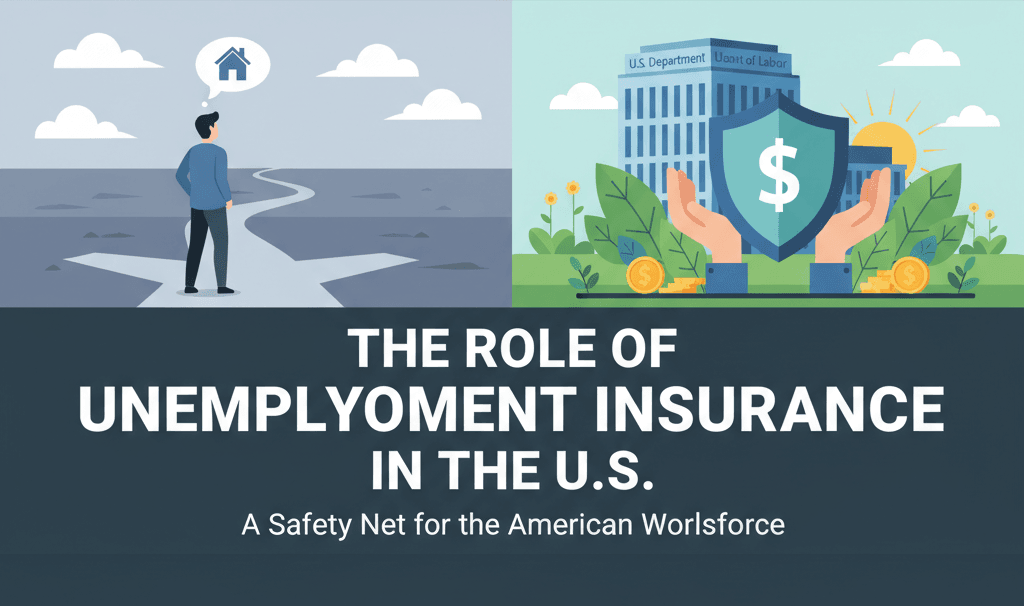The Role of Unemployment Insurance in the U.S. Economy:
The Role of Unemployment Insurance in the U.S. Economy:
Unemployment insurance (UI) plays a crucial role in maintaining the stability of the U.S. economy and protecting workers from sudden financial hardship. Established during the Great Depression as part of the Social Security Act of 1935, this safety net remains one of the most important components of America’s labor policy.
It provides temporary financial assistance to individuals who lose their jobs through no fault of their own, helping them stay afloat while searching for new employment.
In an ever-changing job market — marked by automation, globalization, and evolving work structures — the relevance of unemployment insurance has only grown.
Understanding how this system works, its challenges, and its future direction is key to evaluating its effectiveness in protecting workers and stabilizing the broader economy.
HSBC Cashback Credit Card 2025 – Benefits, Rewards & How to Apply?

The Foundation of Unemployment Insurance in the U.S.
Unemployment insurance in the United States is a joint federal-state program. Each state administers its own unemployment insurance system under federal guidelines, which means eligibility, benefit levels, and duration can vary significantly from one state to another.
The U.S. Department of Labor (DOL) oversees the federal aspect, ensuring states comply with the core principles set by federal law. The funding for unemployment insurance primarily comes from payroll taxes paid by employers, although some states also require small contributions from employees.
The Economic Role of Unemployment Insurance
Unemployment insurance isn’t just about helping individuals — it’s about protecting the entire economy. Economists view UI as a countercyclical tool, meaning it automatically supports demand during economic downturns.
Stabilizing Consumer Spending
When workers lose their income, their ability to spend on essentials like housing, food, and healthcare declines sharply. UI benefits replace part of that lost income, helping sustain consumer demand. This prevents deeper recessions and supports local businesses.
Supporting Job Matching
UI allows workers to search for better job matches, rather than taking the first low-paying or unsuitable position they find. This leads to higher productivity and better long-term job satisfaction, benefiting both workers and employers.
Lessons from the COVID-19 Pandemic
The COVID-19 pandemic highlighted both the strengths and weaknesses of the U.S. unemployment insurance system. In early 2020, unemployment spiked to levels unseen since the Great Depression. Congress responded with unprecedented expansions to UI through the CARES Act, including:
- Pandemic Unemployment Assistance (PUA) for self-employed and gig workers.
- Federal Pandemic Unemployment Compensation (FPUC), which added $600 per week to standard benefits.
- Pandemic Emergency Unemployment Compensation (PEUC) to extend benefit durations.
These programs temporarily transformed UI into a universal safety net, covering millions of workers who were previously excluded. However, they also revealed administrative inefficiencies, such as outdated technology, fraud vulnerabilities, and inconsistent benefit delivery across states.
Unemployment Insurance’s Wider Social Effects
UI is essential for fostering social and emotional well-being in addition to economics. Although losing a job can be emotionally painful, having access to financial support can lessen the long-term health effects of economic insecurity as well as stress and worry.
Research indicates that unemployment benefits can:
- Lower the rates of eviction and foreclosure.
- Prevent economic desperation to reduce crime rates.
- Enhance the mental health of jobless people.
- During economic downturns, keep families and communities stable.
Therefore, UI is a cornerstone of American social stability rather than just a financial tool.
Evaluating the United States in Relation to Other Nations
The U.S. system is less generous than unemployment programs in many developed countries, despite the fact that it offers vital assistance.
European countries like Germany, Denmark, and Sweden offer longer benefit durations and higher replacement rates.
The U.S. prioritizes state autonomy and fiscal prudence, which promotes flexibility but results in uneven protection.
Learning from international best practices—such as automatic benefit triggers and digital claim processing—could help modernize the American system.
Public Perception and Political Debate
Unemployment insurance often sparks political debate. Some policymakers argue that overly generous benefits discourage job-seeking, while others emphasize the system’s essential role in maintaining social equity and economic resilience.
During the pandemic, debates over the $600 federal supplement reflected broader ideological divides about government intervention and personal responsibility.
Surveys, however, consistently show that a majority of Americans support strengthening unemployment insurance, viewing it as a necessary safeguard in a volatile economy.
In conclusion: The Role of Unemployment Insurance in the U.S. Economy.
Unemployment insurance has stood for nearly a century as a symbol of America’s commitment to protecting workers in times of crisis. From the Great Depression to the COVID-19 pandemic, it has cushioned millions of households against financial disaster while stabilizing the economy.
Yet, the challenges ahead demand bold reforms. Modernizing technology, expanding coverage, ensuring fair benefits, and linking UI to workforce development are essential steps toward building a more resilient and inclusive system.
In an era of rapid economic change, unemployment insurance is not just a lifeline—it’s a foundation for national stability and shared prosperity.
The Role of Payroll Taxes in Social Security Funding: How America’s Future Depends on It
The Role of Payroll Taxes in Social Security Funding: How America’s Future Depends on It
